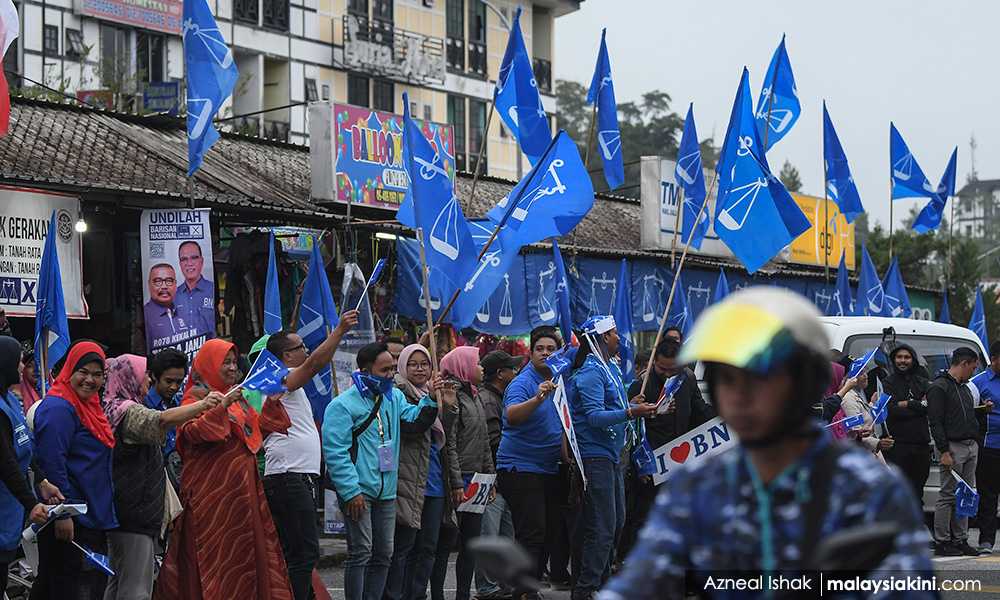ADUN SPEAKS | The recent Cameron Highlands parliamentary by-election won by the BN does nothing to suggest the popularity or the unpopularity of the former, or the Pakatan Harapan coalition.
It merely suggests the epistemological character of many rural or semi-rural constituencies in the country or elsewhere.
BN might have won with the support of PAS, but the electoral support largely given by the Malays and Orang Asli to these political parties, was merely a reflection of their cultural disposition to maintain or prolong their subsistence ethic.
Despite the social and economic problems faced by the rural communities in Cameron Highlands brought by the BN government in the six decades or so, yet the rural communities gave their support to BN. Why?
Was it because of the promise of the BN, or was it due to the lacklustre performance of Harapan?
The answer might not be readily available in the political realm per se. In fact, it was the nature of the economic subsistence of the rural communities in Cameron Highlands that predisposed them to cast their vote for the BN.
Again, it was not a popular vote for BN as such, but cultural and social predisposition of the two main rural communities.
Structural factors play an important part in how rural or peasant communities organise their support for or opposition to political parties
However, class conflicts, by thesis, are not a sufficient explanation for the ultimate opposition or affiliation of the rural communities.

Alternatively, the behavioural pattern of rural communities must be located in the phenomenological realm of ideas, thoughts and politics in the moral economy of these communities.
The thesis of moral economy argues that as long as the subsistence of the rural communities is not drastically affected by changes, politically there will always a tendency to support those who have maintained the status quo, in other words, kept intact the moral economy of the rural communities.
Rural communities are not bereft of ideas. They understand their objective situation very well and respond appropriately in a subjective manner to the changing circumstances.
Thus, in the Cameron Highlands by-election, BN might take great pride in making a political comeback, whereas Harapan might be heavily criticised for losing the election despite having the reigns of the federal government, but such reflections are far off from the actual truth.
Both the political coalitions have failed to understand the moral economy of the rural communities. For BN, it is always political expediency at whatever the cost. For years it had literally bribed its way to get the support of the rural communities.
Little do these BN politicians realise that the moral economy of the rural areas cannot be kept intact forever; changes are coming, so is political orientation.
Harapan has much to learn; using the BN model to gain support from the rural areas might not work. The combination of race, religion and subsistence conservatism might not endear the rural communities to Harapan.
Harapan needs to adopt a different kind of epistemology to gain the support of rural communities, something that would be qualitatively diffident from what is employed by PAS and Umno.
Moral economy, reinforced by race and religion, might have serious political implications for Harapan that is trying to promote democracy, justice and freedom for all Malaysians.
P RAMASAMY is the state assemblyperson for Perai. He is also deputy chief minister II of Penang.
The views expressed here are those of the author/contributor and do not necessarily represent the views of Malaysiakini.

